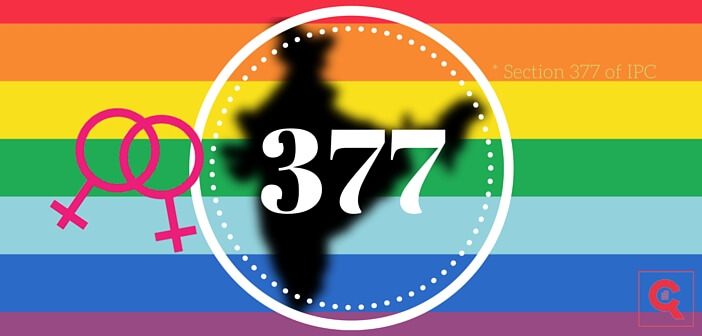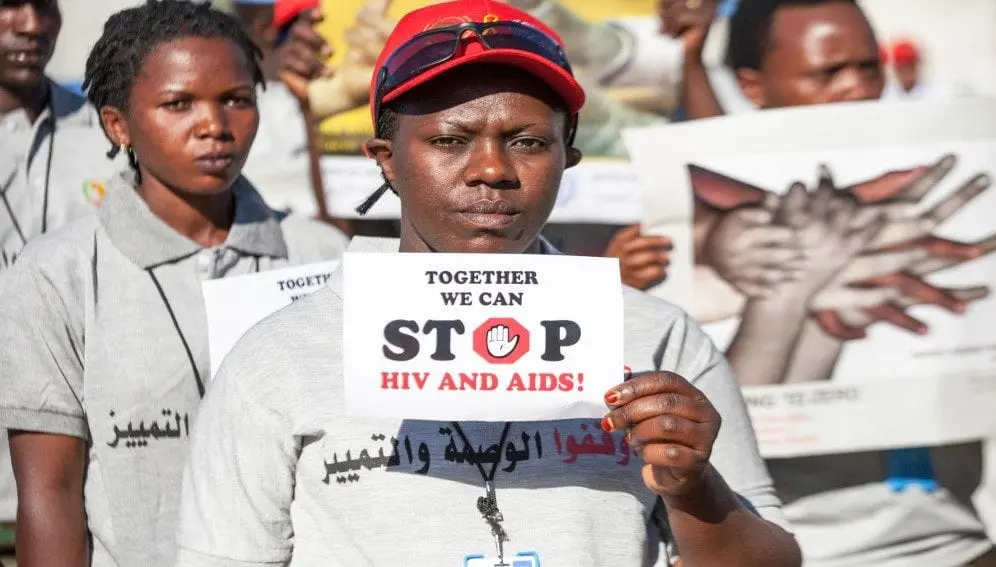Domestic violence is a pervasive global issue, affecting one in three women at some point in their lives. For foreign-born women in France, particularly those who do not speak French fluently, accessing support can be an overwhelming challenge. Language barriers, unfamiliarity with the French legal and social systems, and social isolation exacerbate their vulnerability. Organizations like Women for Women France have emerged as critical lifelines, offering multilingual resources and advocacy to empower these women to reclaim their independence. This article explores the landscape of support available for English-speaking victims of domestic violence in France, delving into the unique challenges faced by foreign-born women, the role of coercive control, legislative gaps, and the broader societal context shaping these issues.
Understanding Domestic Violence in France
The Scope of the Problem
Domestic violence transcends borders, cultures, and socioeconomic backgrounds. In France, an estimated 220,000 women aged 18 to 75 experience physical or sexual violence from their partner or ex-partner annually, though this figure likely underrepresents the true scale due to underreporting and the exclusion of other forms of abuse, such as psychological or economic coercion. Women for Women France highlights that 82% of domestic abuse victims are mothers, underscoring the ripple effects on families and children. The French government acknowledges that only 19% of victims file formal complaints, reflecting systemic barriers to seeking justice.
Foreign-born women, who constitute nearly 10% of France’s female population (approximately 3.3 million individuals), face heightened risks. Social isolation, economic dependence, and administrative vulnerabilities, such as visa dependency, make them particularly susceptible to abuse. The French system, described as complex even for native-born citizens, poses additional hurdles for those unfamiliar with its bureaucratic intricacies.
Defining Domestic Violence
Domestic violence encompasses a range of behaviors beyond physical assault. Sarah McGrath, CEO of Women for Women France, emphasizes that abuse often involves tactics aimed at stripping victims of their autonomy. These include:
- Physical violence: Acts such as hitting, pushing, or other forms of bodily harm.
- Sexual violence: Coerced or non-consensual sexual acts.
- Psychological abuse: Manipulation, gaslighting, or verbal degradation to undermine a victim’s self-esteem.
- Economic abuse: Controlling access to finances, preventing employment, or withholding resources.
- Administrative abuse: Manipulating residency status or withholding documents to maintain control.
Coercive control, a pattern of behaviors designed to dominate and restrict a partner’s freedom, is increasingly recognized as the core of domestic abuse. Unlike physical violence, coercive control may not leave visible scars, making it harder to identify and address. For foreign-born women, abusers often exploit their unfamiliarity with French systems, creating dependency through control over visas, finances, or social networks.
Challenges for Foreign-Born Women
Language Barriers
For English-speaking victims, language is a significant obstacle. The French legal and social service systems primarily operate in French, and while some resources are available in other languages, accessibility remains limited. Women for Women France has worked tirelessly to bridge this gap, offering an online chat service in 135 languages and advocating for the national helpline, 3919, to expand to 185 languages. This expansion, achieved in 2023, was a direct result of three years of advocacy by the organization, ensuring that victims can communicate in their native language during moments of crisis.
“This is wonderful news for victims who do not speak French. This is also important for victims who can speak French but who are suffering from too much shock and trauma to be able to speak anything other than their maternal language,” McGrath noted in a 2023 statement.
Despite these advancements, language support is not universally available across all services. For instance, police stations may require interpreters, which can delay assistance, and not all local associations offer multilingual support. This gap underscores the importance of organizations like Women for Women France, which provide tailored resources for non-French speakers.
Navigating the French System
The French justice system is notoriously complex, with 74-80% of domestic abuse cases dropped by state prosecutors. This high dismissal rate reflects a combination of factors, including insufficient evidence, victim reluctance to pursue complaints, and systemic biases. For foreign-born women, the challenge is compounded by their lack of familiarity with legal procedures and rights. McGrath describes the system as “convoluted,” noting that even French-born women struggle to navigate it.
Administrative dependence is a common tactic of abuse. Abusers may withhold residency documents or refuse to cooperate with visa renewals, leaving victims undocumented and vulnerable. A 2024 study by Women for Women France found that 82% of 100 foreign-born victims interviewed experienced administrative abuse, with 40% becoming undocumented as a result. This “double violence”—domestic abuse coupled with institutional barriers—creates a cycle of entrapment.
Social Isolation and Lack of Support Networks
Foreign-born women often lack the family or community support networks that native-born victims might rely on. Abusers exploit this isolation, fostering dependency by limiting social interactions or access to resources. McGrath explains, “What begins as generosity—inviting a partner to come to France—may end up as social isolation, making sure you do not have any network outside of them, the abuser.” This tactic is particularly effective against women who are new to France and unfamiliar with local customs or services.
Women for Women France: A Beacon of Support
Origins and Mission
Founded in 2018, Women for Women France is a non-governmental organization dedicated to empowering foreign-born individuals facing domestic violence. Its mission is to help victims assert their rights, regain independence, and thrive in France. The organization recognizes the unique vulnerabilities of foreign-born women and tailors its services to address these challenges. With an online resource center that attracts 3,000 daily users and facilitates 500 daily connections to local services, Women for Women France has become a vital resource for victims.
Multilingual Resources and Advocacy
The organization’s online help center offers 90 guides covering topics such as recognizing abuse, filing complaints, securing social housing, and navigating visa issues. These guides are available in multiple languages, making them accessible to a diverse audience. One particularly impactful resource is a self-assessment tool that helps individuals identify abuse by focusing on their emotional experiences rather than the abuser’s actions. Statements like “I’ve lost all confidence in myself” or “I feel like I’m walking on eggshells” prompt users to reflect on their situation, a method McGrath describes as key to recognizing abuse.
Beyond direct support, Women for Women France advocates for systemic change. Its collaboration with institutions like the national police has led to practical improvements, such as the multilingual expansion of the 3919 helpline and online chat services. The organization also conducts research in partnership with universities to inform its programs and policy recommendations, ensuring that its work is grounded in the lived experiences of victims.
Impact and Reach
The impact of Women for Women France is evident in its reach and responsiveness. The organization’s online chat service, available in 135 languages, provides immediate support to victims who may be unable to speak French or access traditional services. The 3919 helpline, now accessible in 185 languages, offers professional counseling and referrals to local associations. These services are critical for victims in crisis, particularly those experiencing trauma that impairs their ability to communicate in a second language.
The organization’s advocacy has also influenced policy discussions. By highlighting the needs of foreign-born victims, Women for Women France has pushed for greater coordination among services and more equitable access to support across France’s regions. Its efforts to criminalize coercive control, discussed below, represent a significant step toward addressing the root causes of domestic abuse.
Coercive Control: The Hidden Face of Domestic Violence
Defining Coercive Control
Coercive control is a pattern of controlling or threatening behaviors designed to make a partner dependent or restrict their freedom. Unlike physical violence, which is often episodic, coercive control is pervasive, affecting victims’ autonomy, dignity, and self-determination. Examples include isolating a partner from friends and family, controlling finances, monitoring communications, or manipulating administrative status. For foreign-born women, coercive control often involves exploiting their visa dependency or lack of knowledge about French systems.
Evan Stark, a leading scholar on coercive control, describes it as a “liberty crime” akin to being held hostage. This framework, adopted in countries like England and Wales, reframes domestic violence as an attack on human rights rather than isolated incidents of violence. In France, however, coercive control is not yet recognized as a distinct offense, leaving victims without adequate legal recourse.
Legislative Gaps and Advocacy
France lags behind its European neighbors in addressing coercive control. England and Wales criminalized it in 2015, followed by Scotland in 2018, with laws carrying penalties of up to seven and 14 years, respectively. These laws recognize coercive control as a course of conduct rather than isolated acts, enabling prosecutors to address patterns of abuse that may not involve physical violence.
In France, the absence of such legislation means that many forms of abuse go unpunished. Women for Women France has made criminalizing coercive control its top policy priority, a decision informed by consultations with victims. In January 2025, French MPs passed a bill to criminalize coercive control, which is now under review by the Senate. If enacted, this law would mark a “massive leap forward,” according to McGrath, by addressing issues like economic and administrative abuse that disproportionately affect foreign-born women.
The European Court of Human Rights has also urged France to revise its legal definition of domestic violence to include coercive control, citing its impact on victims’ rights. The 2021 Chandler-Vérien parliamentary mission further emphasized the need for legislative reform, recommending that coercive control be central to future training and awareness campaigns.
Why Coercive Control Matters
Coercive control is particularly insidious because it can precede and escalate to physical violence. Research by Women for Women France reveals that in a third of femicide cases, the murder is the first act of physical violence, but all victims experienced coercive control beforehand. By criminalizing coercive control, France could prevent escalation and protect the estimated 213,000 women and 398,310 children affected by domestic violence annually.
For foreign-born women, coercive control often manifests as administrative abuse. A case study from Women for Women France illustrates this: “Jessie,” an American citizen, became undocumented when her partner refused to validate her residency renewal. Such tactics trap victims in a cycle of dependency, making it nearly impossible to seek help without risking deportation or loss of custody.
The Role of the 3919 Helpline
Overview and Services
The 3919 helpline, operated by the National Federation Solidarity Women (FNSF) and supported by the French government, is the national reference number for victims of gender-based violence. Available 24/7, it provides listening, guidance, and referrals to local or national partner associations. The helpline addresses various forms of violence, including domestic abuse, sexual violence, forced marriage, and workplace harassment. Since 2023, it offers support in 185 languages, a significant improvement from its earlier limitation to 12 languages plus French.
Counselors at 3919 are trained to assist victims in crisis, offering emotional support and practical advice. For English-speaking victims, the availability of English-speaking counselors is a critical resource. The helpline also serves victims’ friends and family, as well as professionals seeking guidance on supporting victims.
Limitations and Challenges
While the 3919 helpline is a vital resource, it has limitations. Language support, though expanded, is not always available in real-time, and callers may need to schedule callbacks for certain languages. Additionally, the helpline is not an emergency service; victims in immediate danger are advised to call 17 or 18 for police or fire services. For foreign-born women, the helpline’s effectiveness depends on their ability to access follow-up services, which may vary by region and language availability.
Practical Steps for Victims and Supporters
Recognizing and Reporting Abuse
Recognizing abuse is the first step toward seeking help. Women for Women France’s self-assessment tool encourages victims to focus on their feelings—such as loss of confidence or constant anxiety—rather than the abuser’s behavior. This approach helps victims identify subtle forms of abuse, such as coercive control, that may not be immediately apparent.
Reporting abuse can be daunting, especially for foreign-born women who fear repercussions like deportation. However, French law allows anyone, regardless of residency status, to file a complaint. Women for Women France provides detailed guides on how to report abuse, including through the police’s multilingual online chat service, which allows anonymous exchanges. Victims can also file a “main courante” (incident report) to document abuse without immediately pursuing a formal complaint.
Safety Planning
Leaving an abusive situation is the most dangerous time for victims, as abusers may escalate violence when they sense a loss of control. McGrath advises victims to plan their exit carefully and discreetly, ensuring the abuser is unaware of their intentions. Safety planning may include:
- Securing important documents (passports, residency papers).
- Identifying safe places to stay, such as shelters or trusted friends’ homes.
- Contacting support services like 3919 or Women for Women France for guidance.
- Collecting evidence of abuse, such as text messages or medical reports, for future legal action.
Supporting a Loved One
Supporting a friend or loved one experiencing abuse requires patience and sensitivity. McGrath emphasizes the importance of keeping communication channels open, as abusers often isolate victims from their support networks. Practical steps include:
- Listening without judgment and validating the victim’s experiences.
- Offering to connect them with resources like Women for Women France or the 3919 helpline.
- Helping with safety planning, such as identifying safe places or storing important documents.
Societal and Legislative Progress
A Shift in Awareness
While France has been slow to address domestic violence compared to countries like England and Wales, there is growing momentum for change, particularly among younger generations. McGrath notes, “There is a huge movement to change, especially from young women and young men. I’m really encouraged.” This shift is evident in increased public awareness campaigns, such as those led by Women for Women France, and in legislative efforts to criminalize coercive control.
The #MeToo movement and global attention to gender-based violence have also influenced French society, prompting discussions about systemic issues like victim-blaming and inadequate legal responses. However, challenges remain, including cultural attitudes that downplay non-physical forms of abuse and a justice system that dismisses most complaints.
France and the Istanbul Convention
France is a signatory to the Istanbul Convention, a Council of Europe treaty aimed at preventing and combating violence against women. The convention mandates states to criminalize various forms of gender-based violence, including psychological abuse and coercive control. While France has made progress in areas like shelter provision and police training, its failure to criminalize coercive control has drawn criticism from the convention’s monitoring body, GREVIO. Women for Women France’s advocacy aligns with the convention’s goals, pushing for legislative and systemic reforms to better protect victims.
Hidden Truths and Broader Implications
The Intersection of Migration and Gender-Based Violence
The experiences of foreign-born women highlight the intersection of migration and gender-based violence. High migration levels in Europe have increased the urgency of addressing these issues, yet policies often fail to account for the unique needs of migrant women. The European Institute for Gender Equality (EIGE) notes that women are disproportionately affected by gender-based violence, with migrant women facing additional risks due to social and economic marginalization.
In France, half of the women placed in secure housing by the FNSF in 2017 were non-French nationals, despite foreign-born women comprising only 10% of the female population. This disparity reflects the heightened vulnerability of migrant women, who may face “double violence” from both their abusers and institutional barriers.
The Role of Research
Research plays a critical role in understanding and addressing domestic violence. Women for Women France collaborates with universities to study the experiences of foreign-born victims, informing its programs and advocacy. For example, its 2024 study on administrative abuse provided evidence for the need to criminalize coercive control. Similarly, the Chandler-Vérien mission’s interviews with professionals and victims underscored the urgency of legislative reform.
However, gaps in data collection remain. The French government’s estimates exclude non-physical forms of abuse and certain demographics, such as women under 18 or over 75. Comprehensive data is essential for developing effective policies and ensuring that resources reach the most vulnerable populations.
Conclusion
Support for English-speaking victims of domestic violence in France has improved significantly, thanks to organizations like Women for Women France and the expansion of the 3919 helpline. However, foreign-born women continue to face unique challenges, from language barriers and social isolation to administrative abuse and a convoluted justice system. The push to criminalize coercive control represents a promising step toward addressing these issues, but broader systemic reforms are needed to ensure equitable access to support.
For victims, recognizing abuse and accessing resources like Women for Women France’s guides or the 3919 helpline are critical first steps. For supporters, maintaining open communication and assisting with safety planning can make a significant difference. As France moves toward greater awareness and legislative progress, the voices of foreign-born women must remain central to the conversation, ensuring that no victim is left behind.




























0 Comments